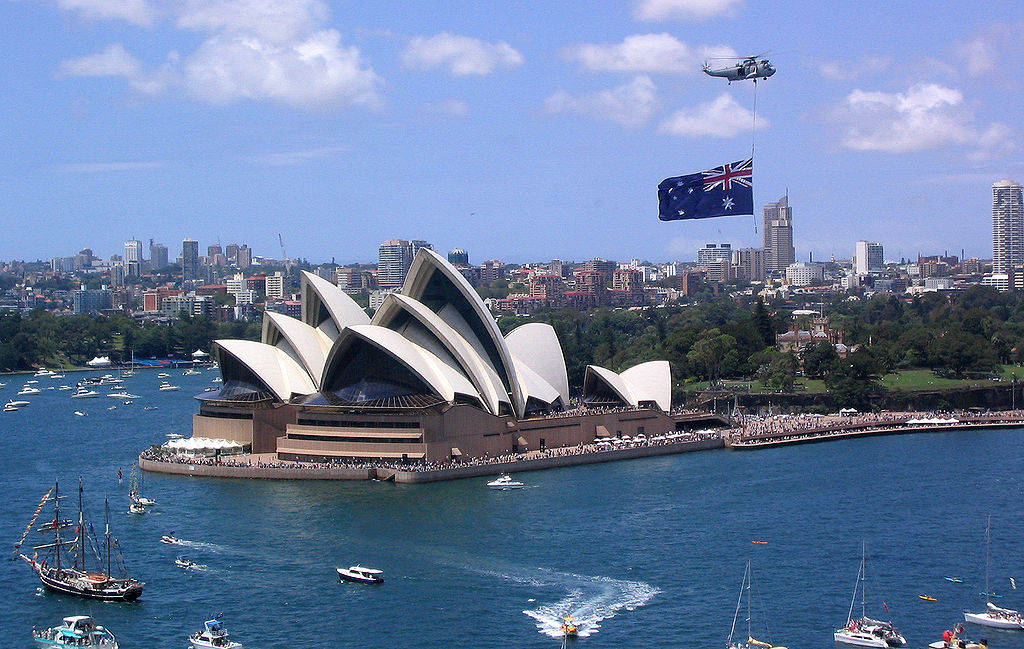Australian Deputy PM calls actions by Chinese ships in West Philippine Sea a “serious escalation of tensions” Singapore, June 1 (ANI): Australian Deputy Prime Minister Richard Marles has described actions by Chinese ships in the West Philippine Sea, such as using water cannon and ramming Philippine vessels, as a “serious escalation of tensions” and stressed that the move is inconsistent with the United Nations Convention on the Law of the Sea (UNCLOS) and the final and binding award of the 2016 South China Sea arbitration. Speaking at Plenary Session 3: Building Cooperative Security in the Asia-Pacific at the IISS Shangri-La Dialogue in Singapore on Saturday, Richard Marles said China’s behaviour towards Taiwan also raises similar concerns. He called on China to make it clear in words and deeds that it does not support the invasion of a sovereign state. In his speech, Marles said, “China making clear by words and deeds that it does not support the invasion of a sovereign country in violation of the UN Charter, consistent with China’s own long-standing commitment to the Charter’s founding principles of sovereignty and territorial integrity, would be a major vote of confidence in Chinese regional and global leadership. Its importance cannot be underestimated.” “Trust and indeed confidence in Chinese intent will be the most critical component for the maintenance of the global rules-based order. And by extension it will be at the heart of building a stable and prosperous Indo-Pacific region. A stable and durable regional order will not be possible unless all countries but especially the large ones pursue their strategic objectives in a manner that respects the sovereign rights of our neighbors and the obligations imposed by international law. We must therefore pay close attention to China’s strategic behavior and the signals it sends,” he said. Speaking about China’s behaviour in the West Philippine Sea and around Taiwan, Australian Defence Minister Richard Marles said, “Actions by Chinese vessels in the West Philippine Sea, such as the use of water cannon and ramming of Philippine vessels, are serious incidents that have escalated tensions and are inconsistent with UNCLOS and the final and binding award of the 2016 South China Sea arbitration.”
“China’s behaviour towards Taiwan also raises similar concerns. PLA exercises that practise attacking and blockading Taiwan do not provide reassurance that China prioritises – or plans to – seek a peaceful resolution to the status of the island and its 22 million people. This year the PLA has made a record number of incursions across the median line in the Taiwan Strait, part of this increasingly worrying trend,” he said.
In his speech, Marles said the Australian Navy has also experienced “unsafe and unprofessional behaviour” by the People’s Liberation Army Navy and the People’s Liberation Army Air Force.
He said, “The Australian Navy has also recently experienced unsafe and unprofessional behaviour by the PLA Navy and PLA Air Force. I want to emphasise that the vast majority of PLA interactions with the ADF are safe and professional.” “But the size and pace of PLA development means that interactions are happening much more frequently. And the activities that the ADF has carried out in the region for decades, safe and in line with international law, are constantly being questioned by the PLA,” he said. Speaking about China’s behaviour in the East China Sea, he said, “The activation of sonar while Australian Navy divers were in the water in the East China Sea in November and the release of flares in the path of a Navy helicopter last month posed a serious risk of injury to our personnel while they were enforcing UN Security Council sanctions against North Korea.” The International Institute for Strategic Studies (IISS) Shangri-La Dialogue, attended by over 550 delegates from defence and security establishments from across the world, serves as a platform for global leaders to discuss security issues and collaborative initiatives to promote regional stability. (ANI)






